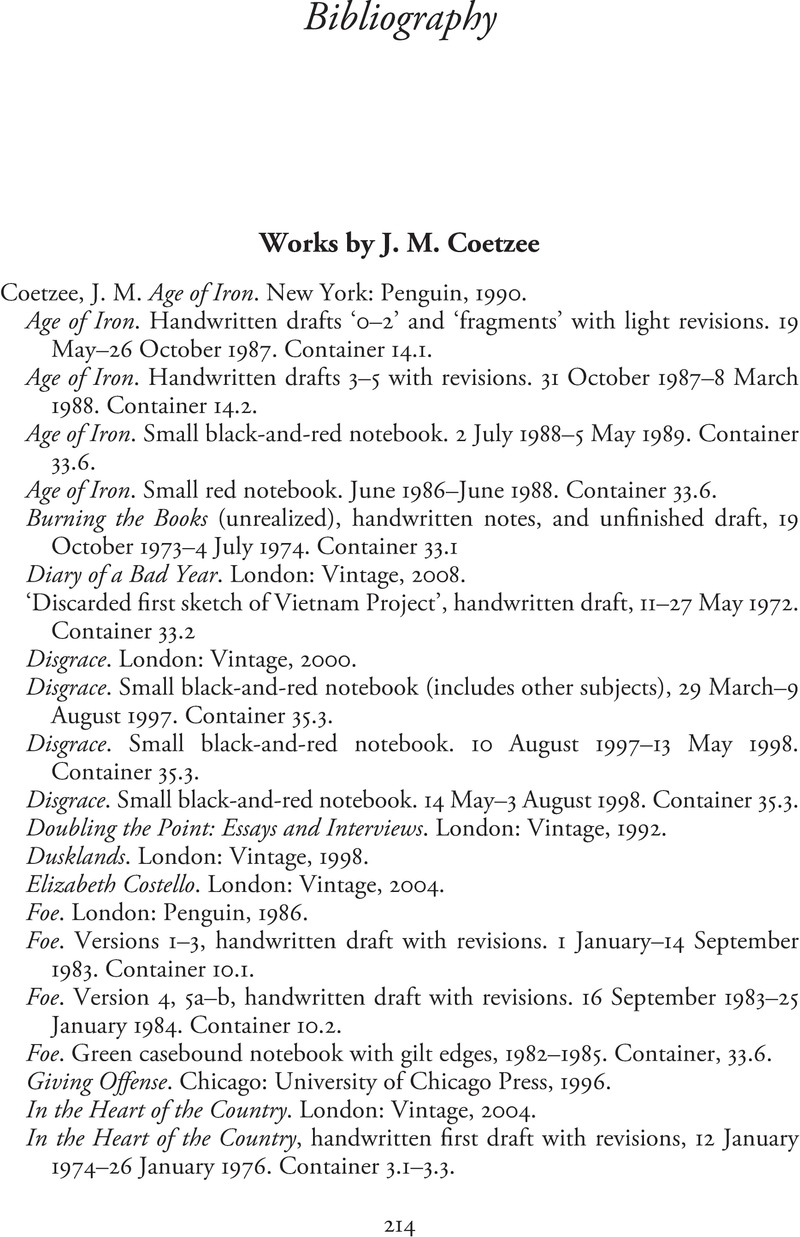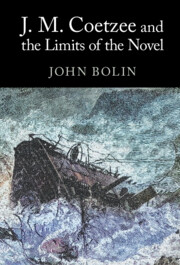Book contents
- J. M. Coetzee and the Limits of the Novel
- J. M. Coetzee and the Limits of the Novel
- Copyright page
- Dedication
- Contents
- Acknowledgements
- Abbreviations
- Introduction
- 1 ‘The Africa Within’
- 2 ‘The Congeries That I Bless with the Name of Evil’
- 3 ‘A Question without an Answer’
- 4 ‘A New Kind of Man’
- 5 ‘The Power of Blackness’
- 6 A Secular ‘State of Grace’?
- 7 ‘No Moral Defense’
- 8 ‘Subjugation, Execution, Then Devouring’
- Conclusion
- Bibliography
- Index
- References
Bibliography
Published online by Cambridge University Press: 08 June 2023
- J. M. Coetzee and the Limits of the Novel
- J. M. Coetzee and the Limits of the Novel
- Copyright page
- Dedication
- Contents
- Acknowledgements
- Abbreviations
- Introduction
- 1 ‘The Africa Within’
- 2 ‘The Congeries That I Bless with the Name of Evil’
- 3 ‘A Question without an Answer’
- 4 ‘A New Kind of Man’
- 5 ‘The Power of Blackness’
- 6 A Secular ‘State of Grace’?
- 7 ‘No Moral Defense’
- 8 ‘Subjugation, Execution, Then Devouring’
- Conclusion
- Bibliography
- Index
- References
Summary

- Type
- Chapter
- Information
- J. M. Coetzee and the Limits of the Novel , pp. 214 - 224Publisher: Cambridge University PressPrint publication year: 2023

